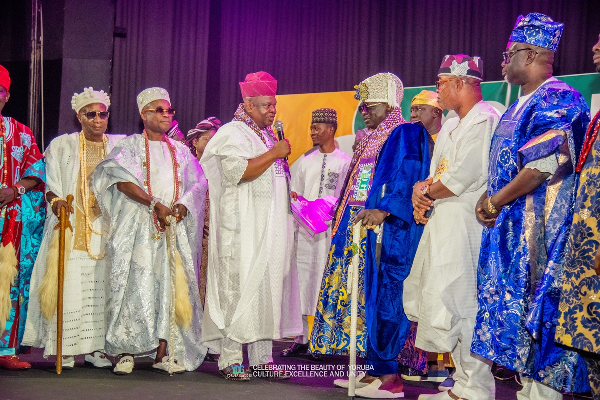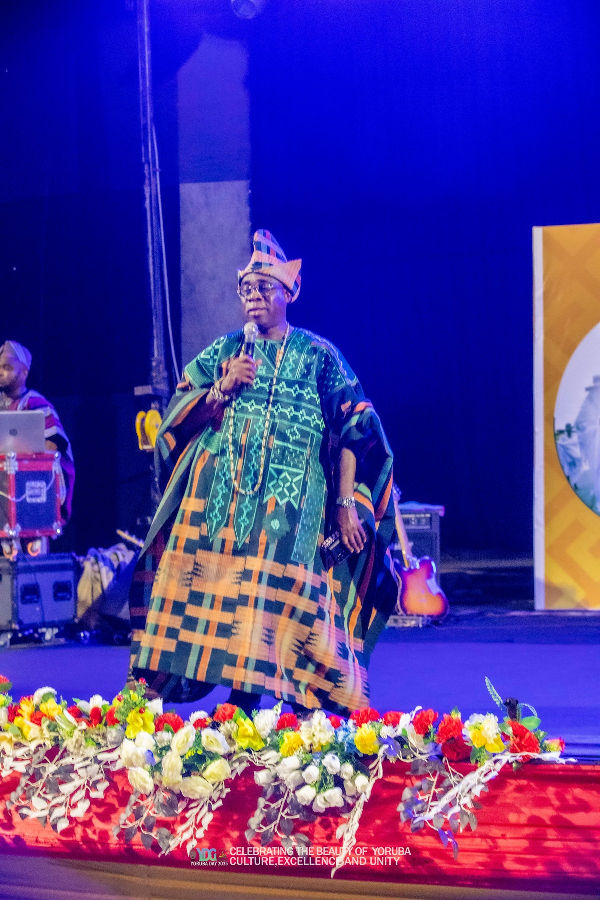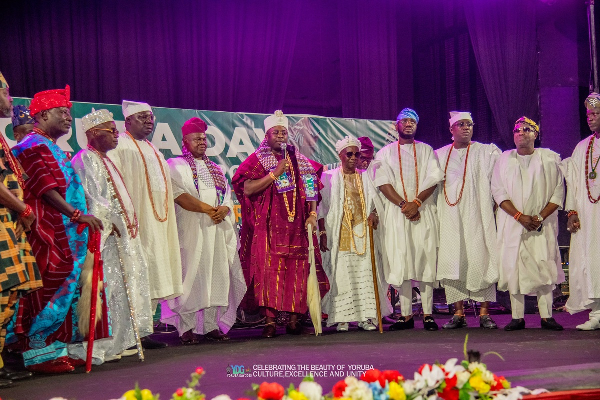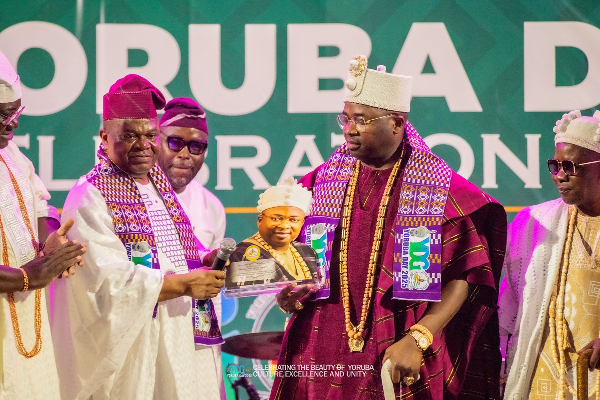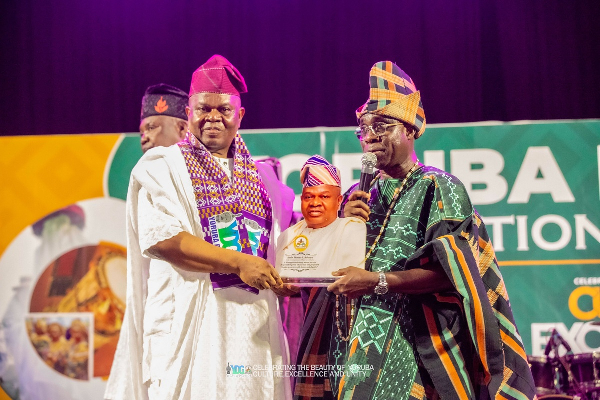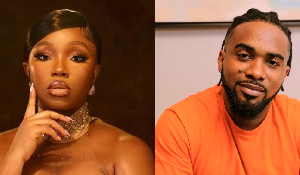General News of Wednesday, 1 October 2025
Source: www.mynigeria.com
Historic Yoruba Day celebration brings together leaders across Ghana and Nigeria
After weeks of consultations and stakeholder engagement, the maiden edition of Yoruba Day was held on Sunday, September 28, at the Accra International Conference Centre.
The cultural festival, designed to celebrate the rich Yoruba heritage in Ghana and foster unity among Nigerians living in the country, was organized under the guidance of Alhaji Babatunde Yahya Azeez, President of the Yoruba Community in Ghana and Baale Ambassador Oyeyemisola Fatuiyi, Chairman of the Yoruba Day 2025 Organizing Committee.
As promised, the event lived up to expectations, bringing together prominent Yoruba leaders from Ghana and Nigeria, including Nigeria's High Commissioner to Ghana, Ambassador Moses Adeoye; His Royal Majesty Oba Alayeluwa Saheed Ademola Elegushi, Kusenla II; HRM Oba Mufutau Gbadamosi Esuwoye II, Olofa Of Ofa; Chief Musa Baba, Chief Olu Luther King, Professor Jeleel Olasunkanmi Ojuade, first Yoruba Professor of Dance in Nigeria and the Vice-Chancellor of Ojaja University; Alhaja Salawa Abeni, Alhaji Sidiku Buari, HRM Oba (Dr.) Samuel Adeoye JP, the Molokun of Atijere Kingdom in Ondo State; HRM Oba Elder Josiah Olanrewaju Aina, the Oloto of Awori Kingdom in Lagos State; Alhaja Sherifaah Mahama Dundu, sister of the sitting President of Ghana, and HRM Oba Abdul Rasheed Brimah, the President of the Yoruba Council of Obas and other Royal fathers in Ghana.
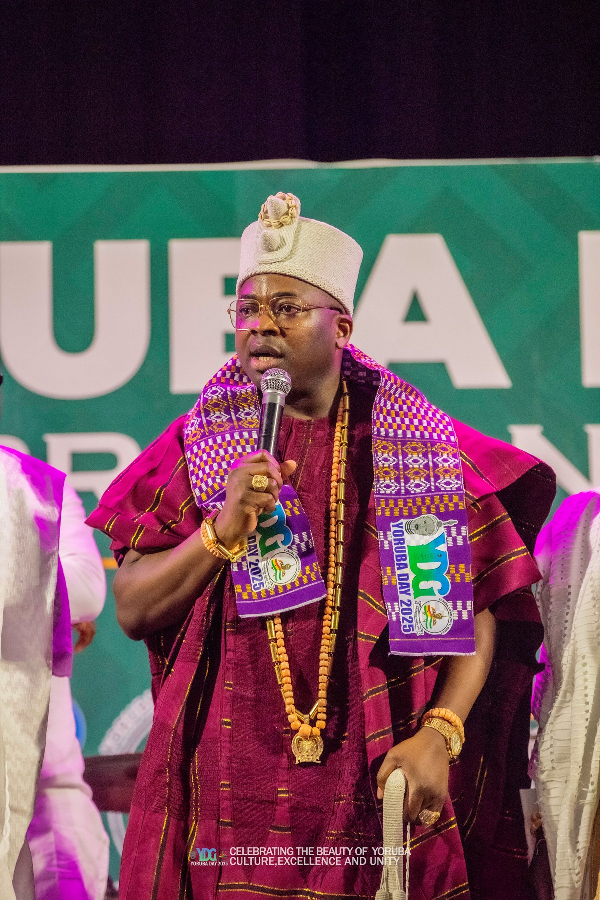
Under the theme “Celebrating the Beauty of Yoruba Culture, Excellence and Unity,” the festival showcased colourful aso-oke outfits, fila (traditional Yoruba caps), drumming, and fuji music that set the tone for a lively cultural display.
Delivering the opening address, Alhaji Babatunde Yahya Azeez, said the event was meant to celebrate Yoruba heritage while strengthening bonds among Yorubas in the country.
“Today, we are gathered not only to celebrate our heritage but also to reflect on the solid foundation laid for us by our fathers. We remember with pride the sacrifices of leaders such as Baba Musa, our former president, and other elders who, even before Ghana’s independence, worked tirelessly to establish the Yoruba community as a vibrant and integral part of this great nation. Their legacy of integrity, hard work, and loyalty remains a guiding light for us all.”
“Indeed, the history of our race is interwoven with Ghana’s own story. Yoruba descendants have made contributions in commerce, education, and leadership, and evidence of this can be seen in the proud heritage that continues to resonate in many Ghanaian families of Yoruba origin. This is a testimony that we are not just residents in Ghana, but true partners in its growth and territorial development.”
“On this occasion, I wish to publicly reaffirm the commitment of the Yoruba community to continue to live in peace with our Ghanaian brothers and sisters. We pledge to respect the culture and traditions of this land, and to promote peaceful coexistence for the progress of all.”
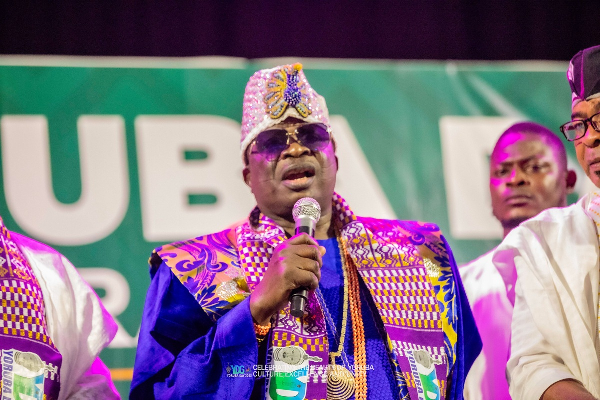
“To strengthen our bond and remind ourselves of our unique identity, I also wish to announce that this Yoruba Day celebration shall henceforth be held every two years, as a day of unity, reflection, and celebration of who we are as a people.”
Speaking on the sidelines, Fatuiyi explained that the gathering sought to foster excellence and unity among Yorubas across Ghana’s sixteen regions. Having lived in the country for 25 years, he said this was the first time he had seen leaders, chiefs, and members come together in one place to feast, strategize, and discuss the wellbeing of their children and future generations.
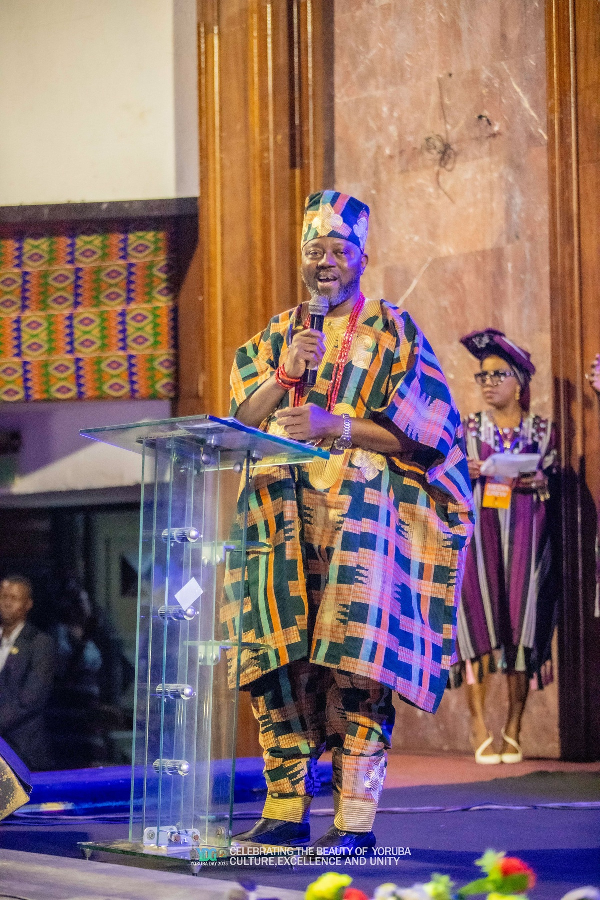
He stressed that beyond the colourful display, the highlight was the unity message. According to him, the leaders were not only preaching solidarity but also working to resolve “in-house issues” among traditional rulers. The focus, he said, was on peaceful coexistence, guiding their subjects, and ensuring Yorubas in Ghana remain law-abiding ambassadors of Nigeria.
Explaining the choice of theme, Fatuiyi pointed to history, noting that Yorubas had lived in Ghana for over 200 years yet had never held such a formal gathering. He said the time had come for the community to meet regularly, check in on one another, and remind the youth to be upright members of society.
He also stressed the need to balance identities, adding that while many Yorubas were born in Ghana, others migrated from Nigeria. “Blending into the Ghanaian system while upholding Yoruba values,” he said, was essential.
Looking ahead, Fatuiyi emphasized youth involvement to sustain the event. Traditions, he said, must be passed down or risk extinction. “Just as a bird flies with two wings,” he added, “our children must learn to balance their Nigerian roots with their Ghanaian identity.”
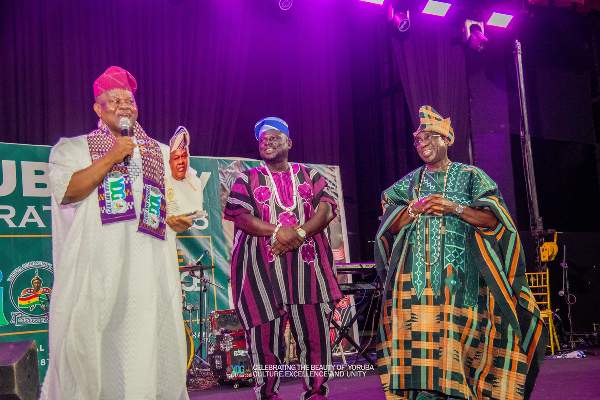
Nigeria’s Acting High Commissioner to Ghana, Ambassador Moses Ifedayo Adeoye, also commended the Yoruba community for being law-abiding and responsible.
“As a Nigerian ambassador here, I have spent almost two years in Ghana, and I want to tell our fathers that came from Nigeria that the Yoruba communities we have here are highly, highly responsible people. Since my last two years here, the government of Ghana has never reported anyone from that community to my office. I think they deserve more kudos than that.
The point I'm making is that the Yoruba communities in Ghana are good ambassadors, not only of the Yorubas, but also of Nigeria.”
The Yoruba’s have a long history in Ghana, with early migrants establishing trade networks by the late 19th century and contributing to commerce and culture. Later migrations were driven by economic and educational opportunities, establishing a significant contemporary Yoruba community in Ghana. The Yoruba also have ancient historical ties to Ghana, as the Ga people are believed to have migrated from Yorubaland.
Below are some images from the event
